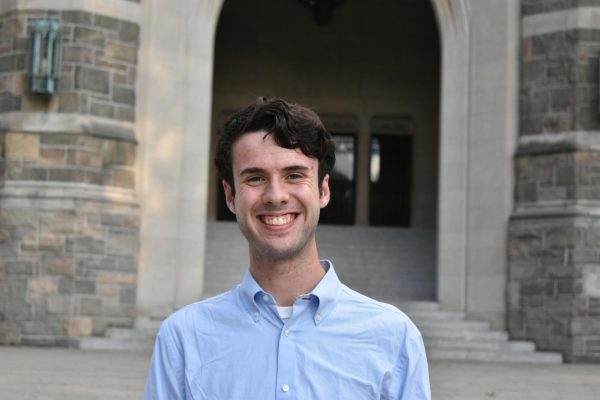“Cura Personalis:” A Meaningless Phrase
If you’ve ever gone through freshmen orientation at Fordham University, you might have heard the phrase “cura personalis.” In fact, you have probably heard it many, many times, since Fordham staff seem to love repeating the words over and over, and connecting them to a variety of Fordham resources and programs.
“Cura personalis,” which means “care for the whole person” in Latin, refers to the university’s goal not only to concern itself with the academic well-being of the student, but other aspects as well. According to the university website, “cura personalis” means “that we don’t just tend to your educational growth; we strive to foster your moral, emotional and spiritual growth, too. It also means we take our responsibility for your well-being and safety very seriously.”
“Cura personalis” is often cited as what makes Fordham University different from other colleges. Listening to the Fordham administration, you would think that every other college in the nation only concerns itself with the student’s academic success and completely disregards everything else. However, in the modern college era, “care for the whole person” no longer makes Fordham unique, and it is incorrect to refer to it as one of the principal differences between Fordham and non-Jesuit colleges.
In order to break down the claim that Fordham is unique in regards to caring for the student’s whole being, it’s useful to look at the different aspects that Fordham lists on their website under the heading “cura personalis.” If caring for the whole student is something that is unique to Fordham (or only Jesuit colleges), it would make sense that these programs would only exist in Jesuit schools. However, if one examines the page about “cura personalis,” it becomes clear that many of the services listed are not unique to Fordham.
The first program listed on the page is Fordham’s policies on providing assistance to survivors of sexual assault. These policies, however, aren’t unique to Fordham; in fact, they’re required under Title IX. Many other schools, such as NYU, require their students to take virtual lessons on sexual assault, so Fordham’s not alone in that either.
Fordham also takes the “responsibility … for [student] safety very seriously.” Guarantees of safety, however, are also not exclusive to Fordham. According to the Department of Justice, 68% of universities have some sort of police force on staff, in order to guarantee student safety. And almost all schools have some sort of health clinic to provide medical assistance.
Fordham then lists various mental health programs, including Counseling and Psychological Services (CPS), as part of their caring for the whole person; but these, too, are not particular to Fordham. According to the American Psychological Association, 72% of college presidents in the United States in 2019 stated they were allocating more funds toward addressing mental health issues.
When Fordham University was founded in 1841, “cura personalis” probably did have a lot of meaning. Back then, many schools were often solely concerned with a student’s academic well-being, and by caring for the whole person, Fordham stood out. In 2022, however, “caring for the whole person” has become the norm at American schools, rather than the exception. Many colleges provide mental and physical health services, give opportunities for moral learning and promise safety; they just don’t have a fancy Latin phrase for it.
All of this wouldn’t be so problematic if Fordham didn’t frequently receive complaints about these very services. This past semester, many Fordham students expressed frustration with CPS for an inability to meet the needs of the student population. While Fordham devotes a lot of energy to promoting the idea of “cura personalis,” it seems like it spends less time actually implementing policies that would make this idea a reality on campus.
Caring for the whole student is a noble goal. But if Fordham wants to stand out from other non-Jesuit schools, it needs to take more steps to fulfill its promise of “cura personalis.” If Fordham wants to be famous for caring for the whole of its students, it needs to try to provide the best academic, mental and physical care for all Fordham students. Until then, “cura personalis” feels more like a cheap advertisement than anything of substance.
Michael Sluck, FCRH ’24, is a political science and computer science major from Verona, N.J.

Michael Sluck is a senior from New Jersey majoring in political science and computer science. He has been copy editing for The Fordham Ram for the entirety...











































































































































































































Benedict Reilly • Apr 5, 2022 at 1:23 pm
This article does not make any reference to the Division of Mission or how cura personalis manifests in pedagogy. The referenced website from the Dean of Students is a straw man.
That being said, all values are aspirational and Fordham is not perfect. Continuing to pursue a value does not make it meaningless.
There is a critique to be made but this is not it.